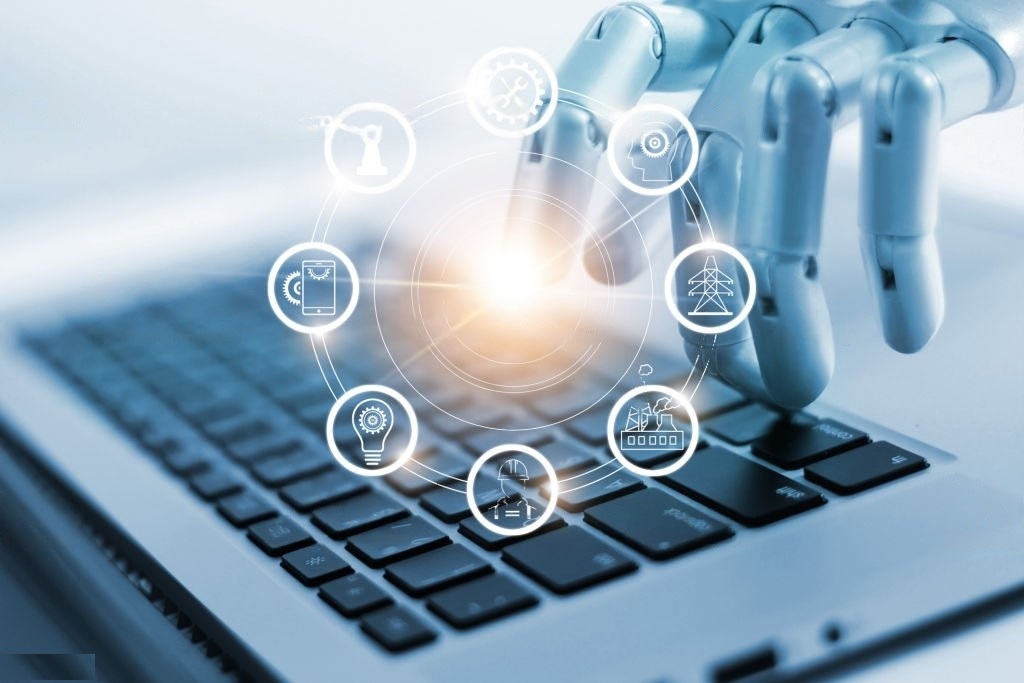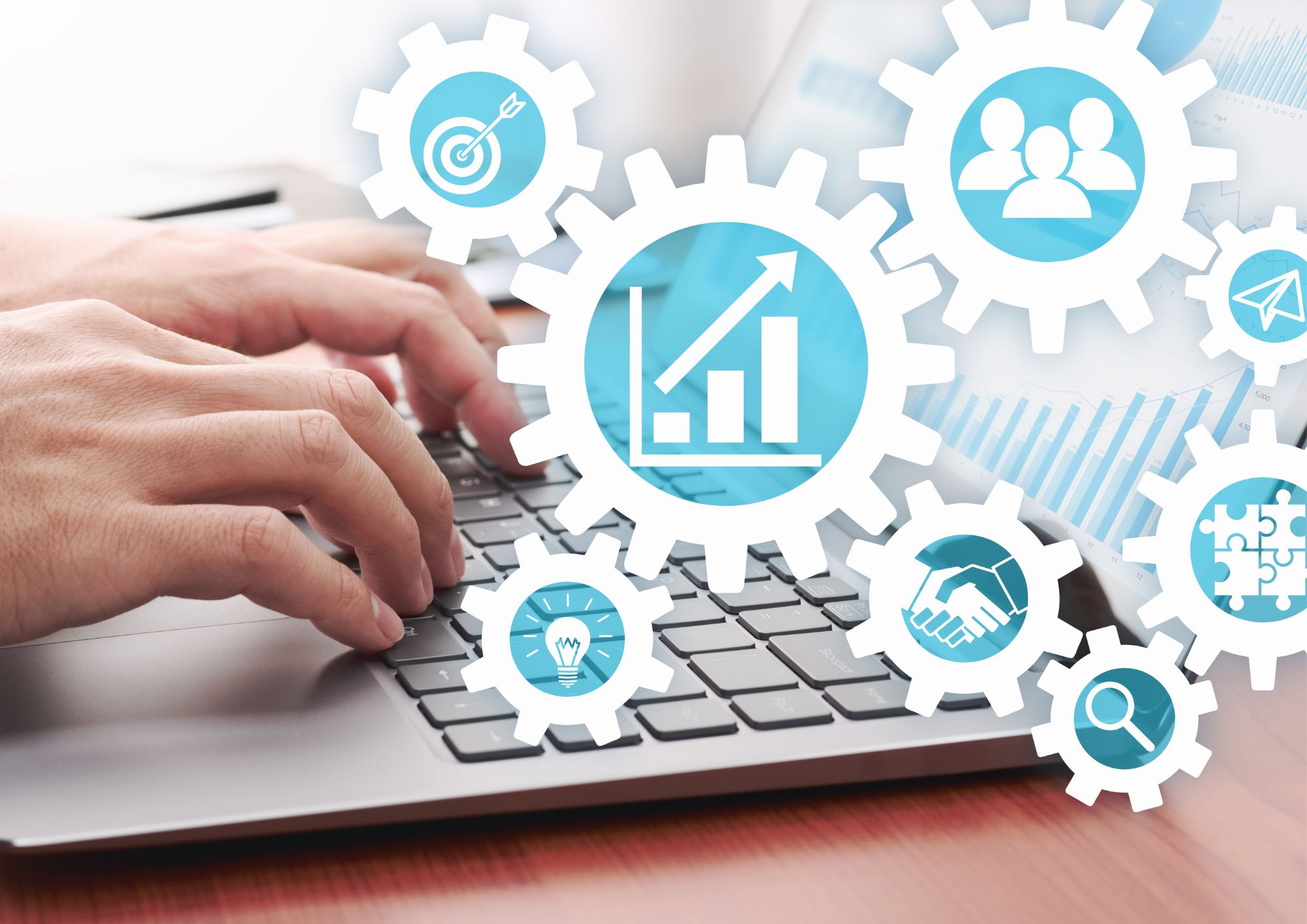Hey there! 
Have you ever wondered how our work life might look in a few years? Will robots be taking over our jobs, or will they actually make our lives easier?
AI automation is changing the way we work, and it’s happening faster than ever before. In this blog, we’ll dive into the fascinating world of AI automation and explore how it’s reshaping the future of work.
So, buckle up and get ready for an interesting ride!
Did you know that by 2025, it’s estimated that AI could automate as much as 52% of current work tasks? 
That’s right! This massive transformation is already well underway, with businesses across the globe leveraging AI to streamline processes, improve efficiency, and stay competitive.
For instance, have you ever interacted with a chatbot on a website? 
That’s AI automation in action, handling customer inquiries and providing support. And that’s just the tip of the iceberg. From healthcare to manufacturing,
AI is revolutionizing various industries and changing how we work.
Now, you might be thinking, “Will I be replaced by a robot?!” 
Don’t worry; while it’s true that AI will replace some jobs, it will also create new ones. For example, AI developers, data scientists, and AI ethicists are some of the in-demand roles emerging in this AI-driven era.
So, are you excited to learn more about AI automation and how it’s transforming the way we work?
Let’s get started!
Table of Contents
- The rise of AI automation
- AI automation and the workforce
- The changing nature of work
- Adapting to the AI-driven future of work
- Summary
The rise of AI automation
Historical perspective on automation and its impact on work
You might think AI automation is a new thing, but the truth is, humans have been trying to automate tasks for centuries. Remember the Industrial Revolution in the 18th century? 
That was all about using machines to make work faster and more efficient. In the 20th century, we saw computers and the internet revolutionize the way we work and live.
And now, AI is taking automation to a whole new level.
Key technological advancements in AI automation
There have been some major breakthroughs in AI automation in recent years. Here are a few that you should know about:
- Machine learning: This is when computers can learn from data without being explicitly programmed. It’s like when you’re learning to ride a bike, but for computers!
- Deep learning: This is a subset of machine learning, inspired by the human brain’s neural networks. It allows AI to recognize patterns, like how we recognize faces.
- Natural language processing (NLP): Ever used Siri or Google Assistant?
NLP is what helps them understand and respond to human language.
Industries and sectors that are currently experiencing AI-driven transformation
AI automation is making waves in almost every industry. Let me give you some cool examples:
- Healthcare: AI is being used to analyze medical images, like X-rays and MRIs, to detect diseases more accurately and quickly. In fact, an AI system developed by Google can detect breast cancer with a 94.5% accuracy rate!
- Manufacturing: Robots and AI are working side by side with humans on assembly lines, improving efficiency and safety. Some companies have reported a productivity increase of up to 30% by using AI automation!
- Retail: Ever shopped online and received personalized recommendations? That’s AI at work! It analyzes your shopping habits and preferences to suggest products you might like. Retailers using AI have seen a 10% increase in sales on average.
AI automation and the workforce
let’s talk about how AI automation is affecting jobs and the workforce. It’s a hot topic, and for a good reason!
Job displacement due to AI automation
Roles at risk of automation
AI is pretty amazing at taking over repetitive tasks and making quick decisions. But that also means some jobs are at risk of being automated.
For example, cashiers, data entry clerks, and even truck drivers could be replaced by AI and robots in the future. 
A study by McKinsey estimates that about 50% of current work activities are automatable with existing technology!
The effects of automation on low-skilled, medium-skilled, and high-skilled jobs
AI is impacting jobs across the board, but the effects differ based on skill level:
- Low-skilled jobs: These roles are often routine and manual, making them more vulnerable to automation. Think factory workers and fast-food employees.
- Medium-skilled jobs: Some of these jobs might be partially automated, while others could be transformed completely. For instance, AI can help accountants analyze data faster but won’t replace their decision-making abilities.
- High-skilled jobs: These roles usually require creativity, problem-solving, and social skills. AI can assist but is less likely to replace them entirely. Think doctors, engineers, and designers.
Job creation through AI automation
Emerging job opportunities in AI and related fields
But hey, it’s not all doom and gloom! 
AI automation is also creating new job opportunities. AI developers, data scientists, and AI ethicists are just a few examples of in-demand roles that didn’t exist a few decades ago.
Plus, AI can help us discover new areas of research and innovation, which means even more job opportunities in the future!
The importance of reskilling and upskilling the workforce
To stay ahead of the game in this AI-driven world, we need to be ready to learn new skills and adapt. That’s where reskilling and upskilling come in:
- Reskilling: Learning new skills to transition into a different job or industry. For example, a cashier could learn programming and move into a tech role.
- Upskilling: Improving your current skills to stay relevant in your job. For instance, a marketing professional could learn how to use AI-powered tools for better ad targeting.
The changing nature of work
AI automation is changing the way we work. It’s not just about robots and algorithms – it’s also about how we interact with technology and adapt to new ways of working. Check this out!
Shift towards remote and flexible work
You’ve probably noticed that remote work has become a big deal lately, right? 
AI automation is one of the driving forces behind this shift. With advanced collaboration tools and AI-powered software, employees can work from anywhere, anytime.
In fact, a survey by Gartner found that 82% of company leaders plan to allow employees to work remotely at least part of the time, even after the pandemic!
Collaboration between humans and AI in the workplace
The future of work is not just about humans vs. robots – it’s about working together! AI can help us be more efficient, make better decisions, and free up time for more creative and strategic tasks. 
For example, AI can analyze vast amounts of data in seconds, helping doctors diagnose illnesses more accurately, while sales teams can use AI to identify the best leads and close deals faster.
It’s a win-win situation when we embrace AI as a teammate!
Increasing importance of soft skills and adaptability
As AI takes care of more routine tasks, soft skills like communication, empathy, and teamwork become even more important. After all, robots might be smart, but they can’t quite replace the human touch! 
A report by Deloitte highlights that two-thirds of jobs will be “soft skill-intensive” by 2030. So, it’s time to brush up on those people skills!
Adapting to the AI-driven future of work
The role of education and continuous learning
Education plays a huge part in preparing us for the AI revolution. 
But, it’s not just about getting a degree – it’s about embracing lifelong learning! With online courses, webinars, and workshops, you can stay updated with the latest skills and trends.
Did you know that Coursera, an online learning platform, has over 77 million learners worldwide? That’s a lot of people investing in their future!
Strategies for businesses to stay competitive in the AI-driven landscape
Businesses need to step up their game too! Here are some strategies they can use:
- Invest in AI technology: Adopting AI tools can boost efficiency and productivity. In fact, companies that have implemented AI reported a 15% increase in productivity on average!
- Embrace a data-driven culture: Data is the new gold, and companies should use it to make informed decisions.
- Prioritize employee training: Businesses should help employees develop new skills and adapt to AI-driven changes. Companies that invest in employee training have seen a 24% higher profit margin compared to those who don’t!
Government policies and initiatives to support workforce transition
Governments also play a vital role in supporting the workforce as we adapt to AI. Here’s what they can do:
- Invest in education and training programs: This helps people develop the skills needed for the AI-driven job market. For instance, Singapore has a program called SkillsFuture, which offers subsidies and credits for lifelong learning!
- Encourage research and innovation: By funding AI research, governments can foster innovation and create new job opportunities.
- Develop fair labor policies: As AI changes the way we work, governments should ensure that workers’ rights are protected, and the benefits of AI are shared equally.
Summary
the AI-driven future of work is full of exciting possibilities and challenges.
AI automation is transforming industries, changing the way we work, and creating new job opportunities.
As we embrace this new era, it’s crucial for individuals, businesses, and governments to adapt and collaborate to make the most of these advancements.
By investing in education, continuous learning, and innovative technologies, we can stay ahead of the curve and ensure a prosperous future for all.
It’s essential to develop soft skills, adaptability, and a lifelong learning mindset to thrive in this rapidly evolving landscape. Together, we can shape a better, smarter, and more inclusive future of work, powered by AI.
So, let’s gear up and embrace the exciting AI-driven journey ahead!
Thank you for reading our blog, we hope you found the information provided helpful and informative. We invite you to follow and share this blog with your colleagues and friends if you found it useful.
Share your thoughts and ideas in the comments below. To get in touch with us, please send an email to dataspaceconsulting@gmail.com or contactus@dataspacein.com.
You can also visit our website – DataspaceAI






















